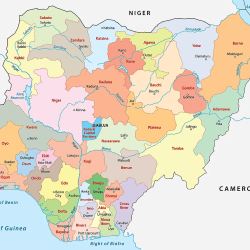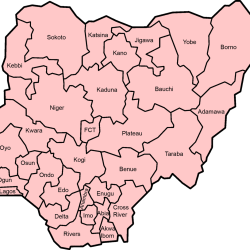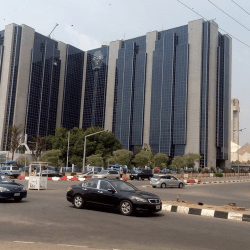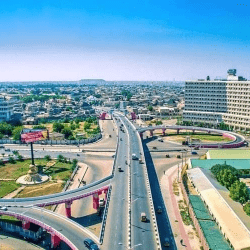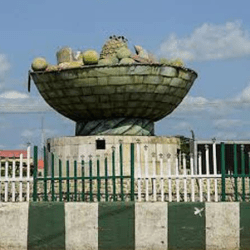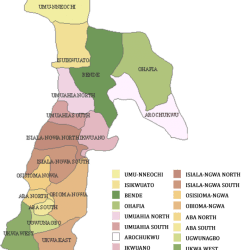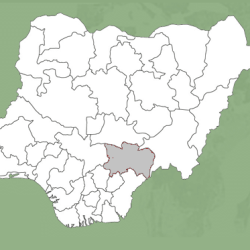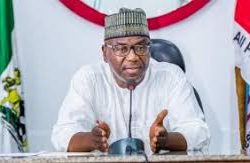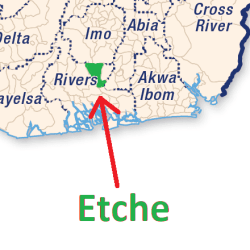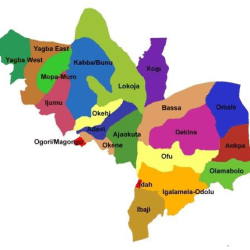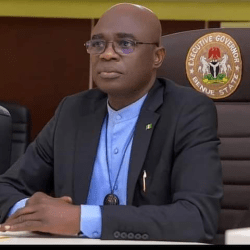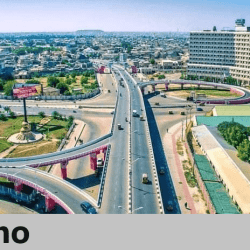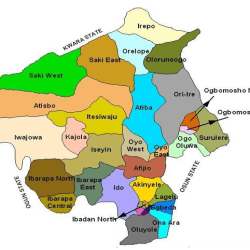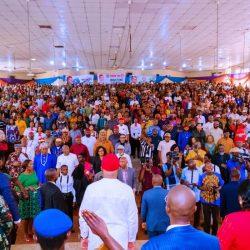The top 10 States with the largest number of Local Government Areas (LGAs) in Nigeria are:
- Kano: 44
- Katsina: 34
- Oyo: 33
- Akwa lbom: 31
- Osun: 30
- Barno: 27
- Imo: 27
- Jigawa: 27
- Delta: 25
- Niger: 25
Nigeria comprises 36 states, 774 Local Government Areas (LGAs) and 9,410 Council Wards. The wards (electoral districts) serve as the smallest administrative units for governance. It is especially relevant during local elections and for activities meant to reach the grassroots directly.
Nigeria’s division into states, LGAs, and wards ensures that governance reaches all levels of society. This hierarchical structure allows local government areas and wards to effectively address community-specific needs and engage citizens in democratic processes.
Nigeria, as a federal republic, has these details as concerns its administrative divisions:
- Total number of states: 36 (and 1 Federal Capital Territory)
- Total number of LGAs: 774
- Total number of council wards: 9,410
Nigeria’s 36 states are:
- Abia
- Adamawa
- Akwa Ibom
- Anambra
- Bauchi
- Bayelsa
- Benue
- Borno
- Cross River
- Delta
- Ebonyi
- Edo
- Ekiti
- Enugu
- Gombe
- Imo
- Jigawa
- Kaduna
- Kano
- Katsina
- Kebbi
- Kogi
- Kwara
- Lagos
- Nasarawa
- Niger
- Ogun
- Ondo
- Osun
- Oyo
- Plateau
- Rivers
- Sokoto
- Taraba
- Yobe
- Zamfara
While Kano has 44 Local Government Areas, the largest number per a state in Nigeria, Bayelsa has 8 Local Government Areas, the smallest number per a state in Nigeria. (Abuja has 6 Local Government Areas so in a context where it is considered as a state, it has the smallest number followed by Bayelsa).
States and their Local Government Areas
Largest to smallest: List of States and their Local Government Areas: From States with the largest number of Local Government Areas to the ones with the smallest number.
| State | LGA |
| Kano | 44 |
| Katsina | 34 |
| Oya | 33 |
| Akwa lbom | 31 |
| Osun | 30 |
| Barno | 27 |
| Imo | 27 |
| Jigawa | 27 |
| Delta | 25 |
| Niger | 25 |
| Benue | 23 |
| Kaduna | 23 |
| Rivers | 23 |
| Sakata | 23 |
| Adamawa | 21 |
| Anambra | 21 |
| Kebbi | 21 |
| Kogi | 21 |
| Bauchi | 20 |
| Lagos | 20 |
| Ogun | 20 |
| Cross River | 18 |
| Eda | 18 |
| Ondo | 18 |
| Abia | 17 |
| Enugu | 17 |
| Plateau | 17 |
| Yobe | 17 |
| Ekiti | 16 |
| Kwara | 16 |
| Taraba | 16 |
| Zamfara | 14 |
| Ebonyi | 13 |
| Nasarawa | 13 |
| Gombe | 11 |
| Bayelsa | 8 |
| FCT | 6 |
Council Wards, their Local Government Areas and States
Largest to smallest: List of States and their Council Wards: From States with the largest number of Council Wards to the ones with the smallest number.
| State | Wards |
| Kano | 484 |
| Lagos | 377 |
| Imo | 376 |
| Katsina | 361 |
| Oya | 351 |
| Osun | 332 |
| Anambra | 330 |
| Akwa lbom | 328 |
| Plateau | 325 |
| Bauchi | 323 |
| Rivers | 318 |
| Barno | 310 |
| Jigawa | 288 |
| Enugu | 280 |
| Benue | 277 |
| Niger | 275 |
| Abia | 267 |
| Delta | 267 |
| Kaduna | 255 |
| Sakata | 244 |
| Ogun | 240 |
| Kogi | 239 |
| Ebonyi | 235 |
| Adamawa | 226 |
| Kebbi | 225 |
| Ondo | 203 |
| Kwara | 193 |
| Cross River | 192 |
| Eda | 192 |
| Yobe | 178 |
| Ekiti | 177 |
| Taraba | 167 |
| Nasarawa | 147 |
| Zamfara | 147 |
| Gombe | 114 |
| Bayelsa | 105 |
| FCT | 62 |
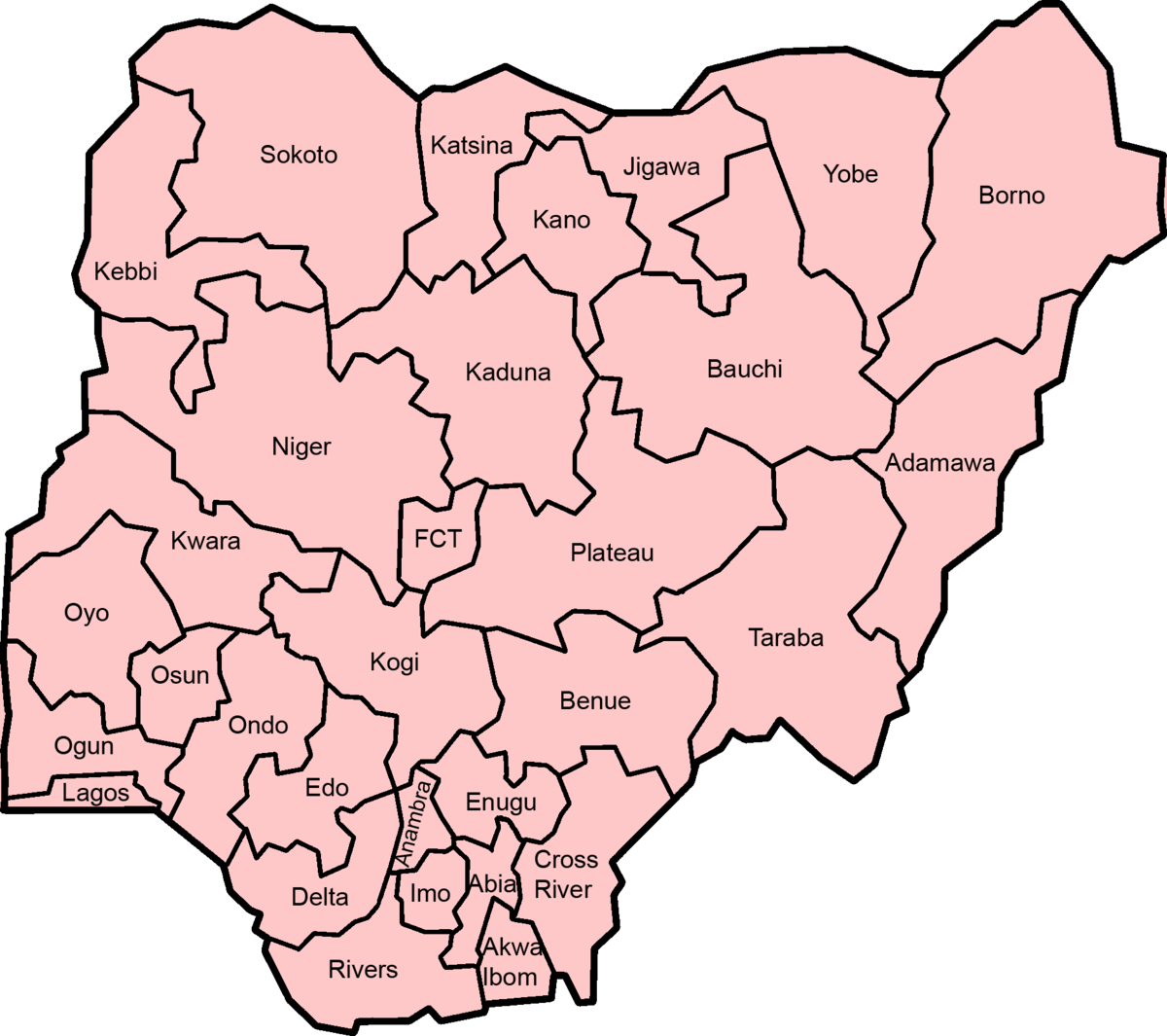
Local Government Areas (LGAs) are administrative divisions under the country’s federal structure. The Local Government Areas serve as the third level of government, below the states and the federal government. They are responsible for providing certain public services to local communities, such as healthcare, education, infrastructure, and waste management.
Nigeria is divided into 36 states and the Federal Capital Territory (FCT), and each state (except the FCT) is divided into multiple LGAs. As of now, there are 774 LGAs across the country.
The FCT has its own unique administrative setup. It is divided into 6 Area Councils:
- Abuja Municipal Area Council (AMAC)
- Bwari Area Council
- Gwagwalada Area Council
- Kwali Area Council
- Kuje Area Council
- Abaji Area Council
Each LGA has a Local Government Council that includes a chairman (elected through local elections) and other officials responsible for the local governance and services.
The responsibilities of LGAs generally include:
- Local administration and governance.
- Provision of primary healthcare and health services.
- Management of local markets and economic planning.
- Road maintenance and local infrastructure.
- Education at the primary and secondary levels.
- Waste collection and sanitation services.
Council Wards
Nigeria Council Wards serve several purposes:
- Basic Administrative Units: Wards are the smallest electoral and administrative units in Nigeria’s political structure, directly impacting local governance.
- Election of Councillors: Each ward elects a councillor who represents them in the LGA council, providing direct governance and a voice for local residents.
- Varied Number of Wards: The number of wards varies by LGA and state, depending on population density and geographic considerations.
- Grassroots Representation: Wards serve as a bridge between the people and local government, enabling more localized governance and representation.
